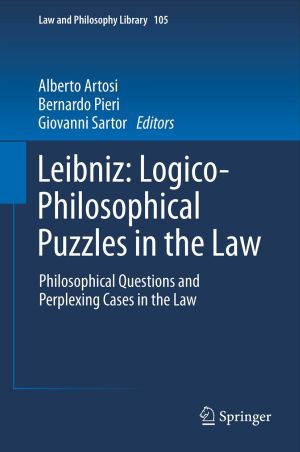
This book includes English translations of two early legal-philosophical writings by Leibniz: the Specimen Quaestionum philosophicarum ex Jure Collectarum (1664), here translated as Specimen of Philosophical Questions Collected from the Law, and Disputatio Inauguralis de Casibus Perplexis in Jure (1666), translated as Inaugural Dissertation on Perplexing Cases in the Law. The Specimen, written by Leibniz for the degree of Master of Philosophy, is devoted to a discussion of a variety of scientific and philosophical questions arising from Roman and German law, in an encyclopedic progression from logic to metaphysics through mathematics, physics, physiology, and zoology. Many of these questions (e.g., the logical paradoxes, the nature of animals and humans, the ontological status of moral entities) are still of interest to both philosophers and legal scholars. The Disputatio, Leibniz's doctoral dissertation in law, deals with more strictly legal questions, in line with Leibniz's former philosophical interests. The dissertation opens with an inquiry into the meaning of casus perplexus (perplexing or, as we would say today, "hard" cases) and develops through a systematic discussion of 25 perplexing cases, examining the solutions proposed by jurists and suggesting new solutions in the conviction that "there is no lawsuit to which law cannot be applied, as there is no disease that rejects absolutely every medicine".